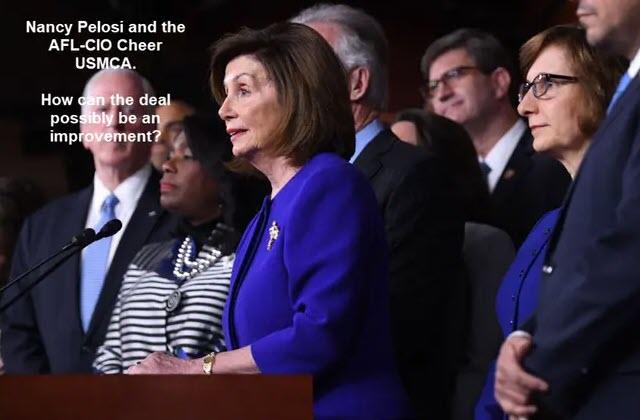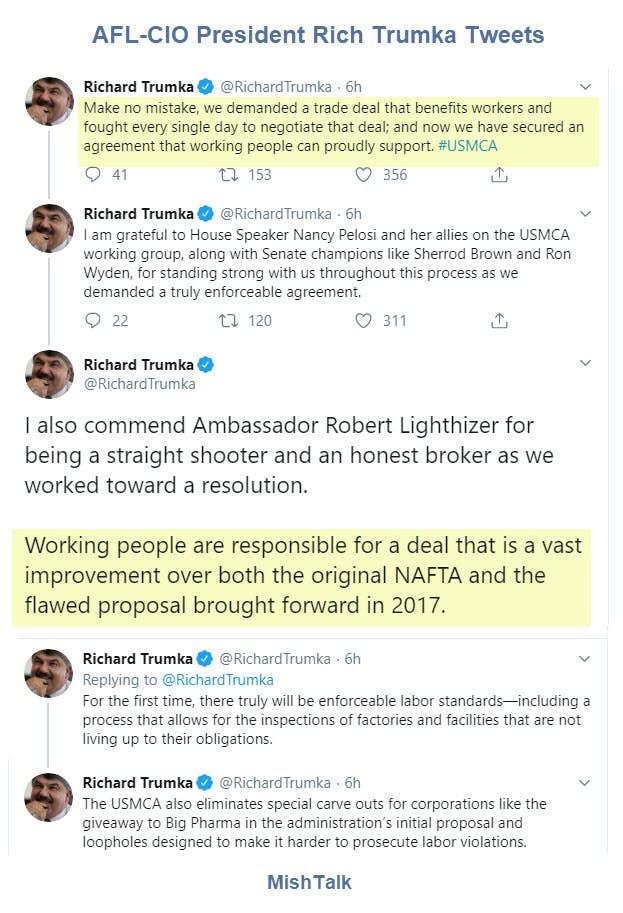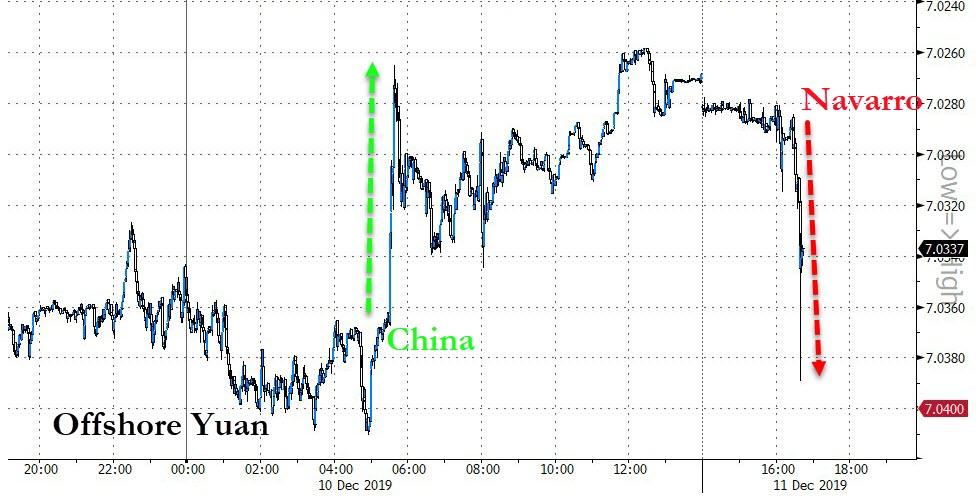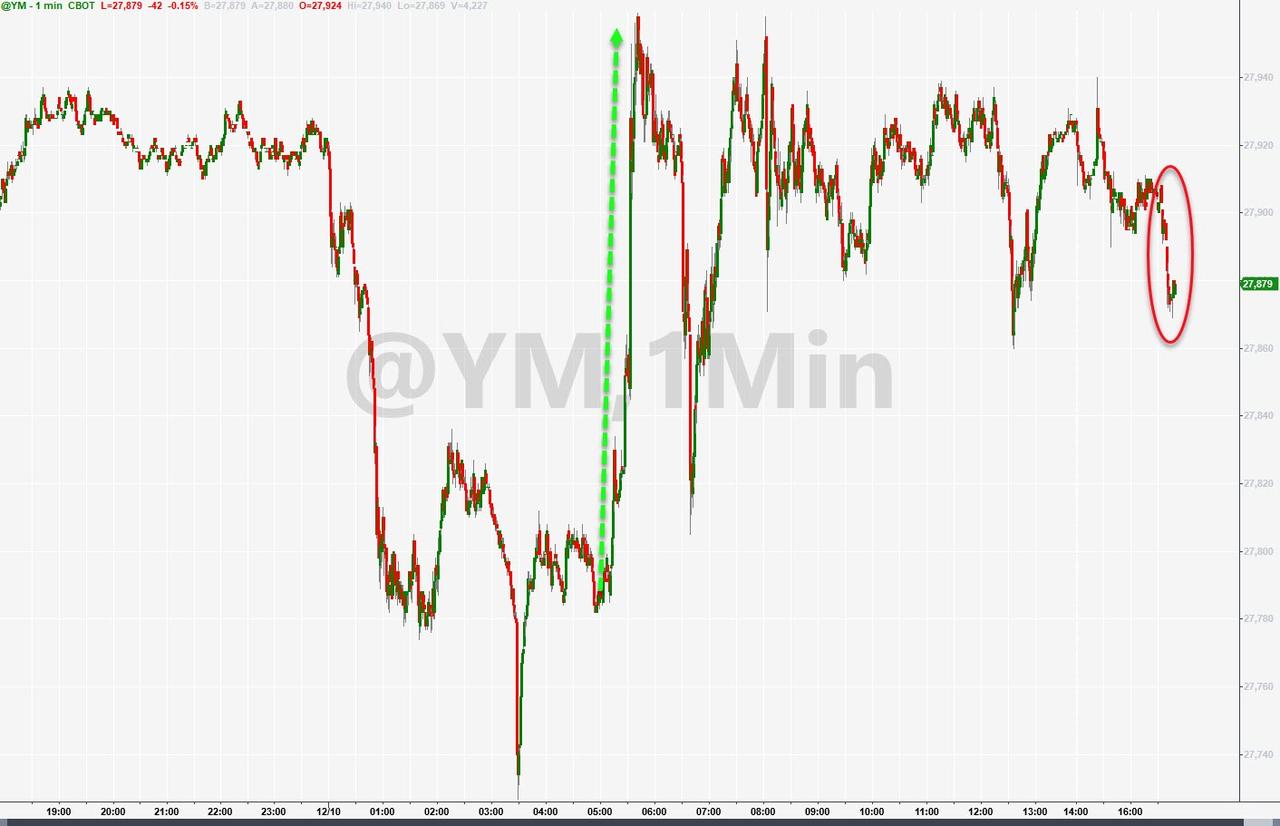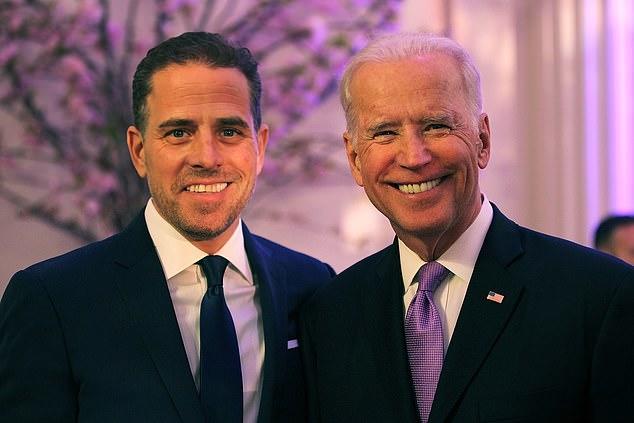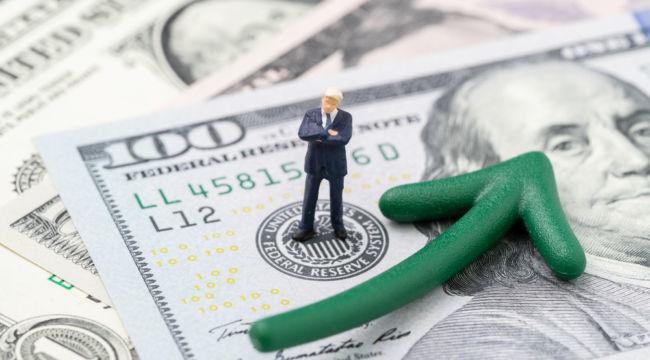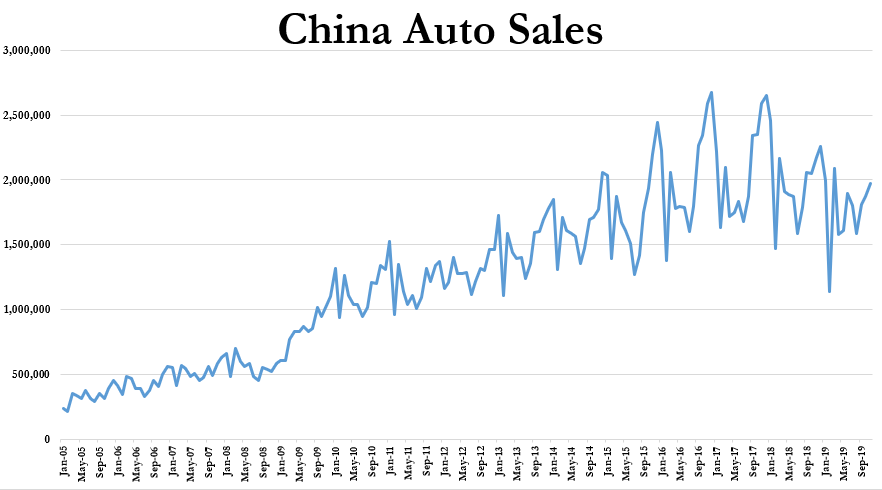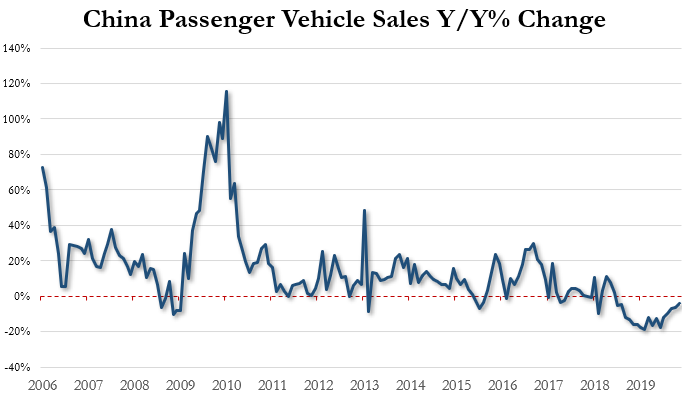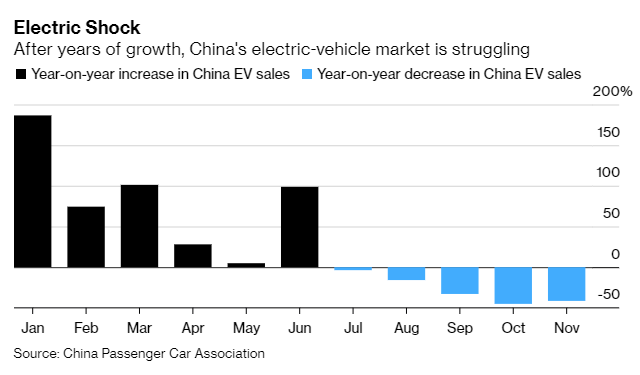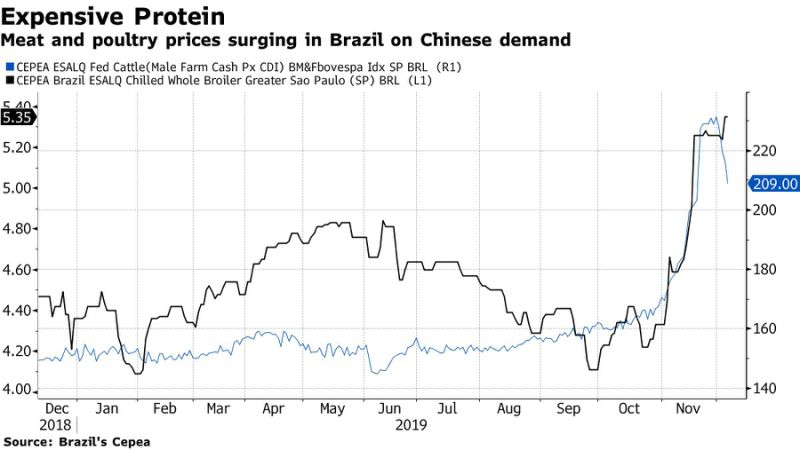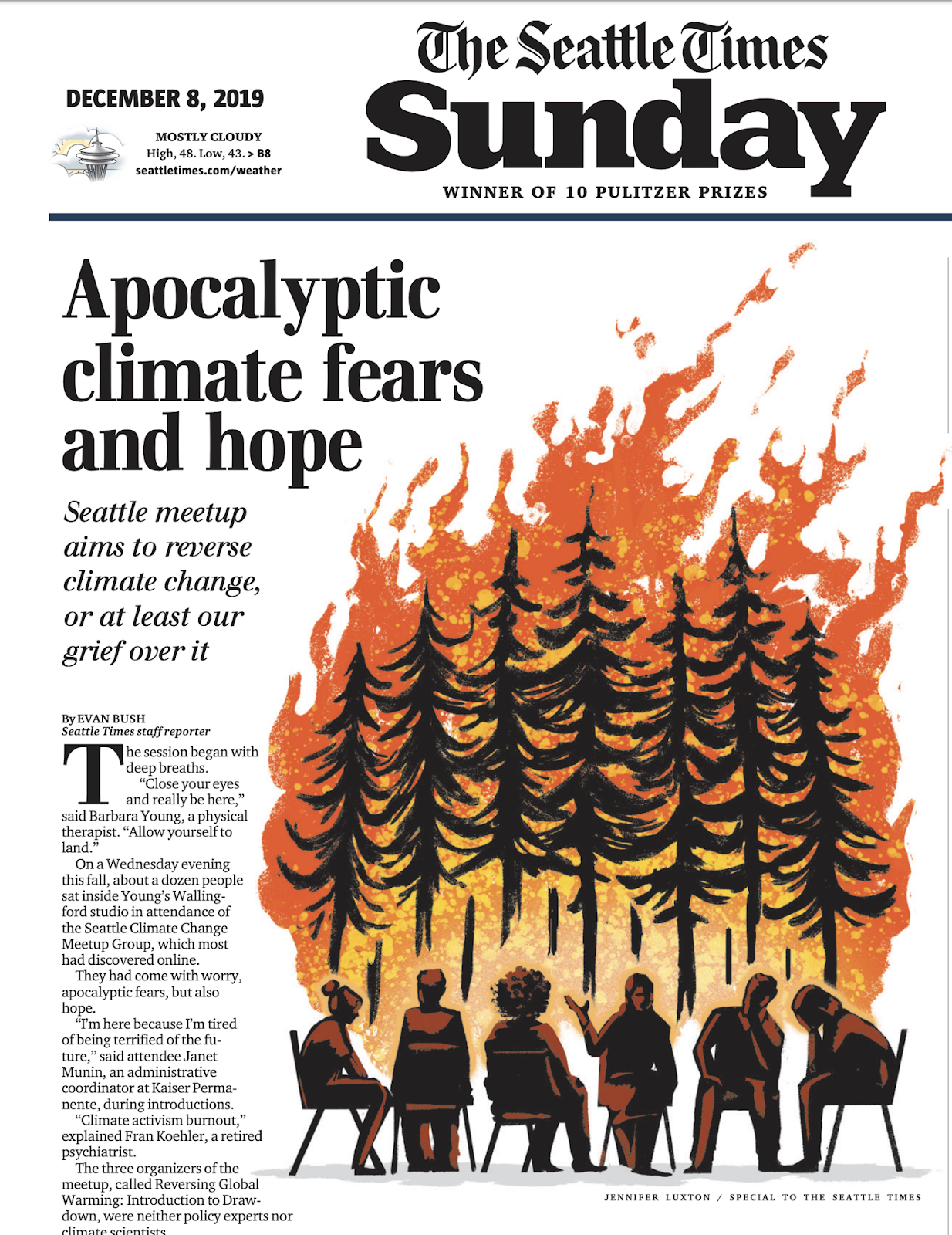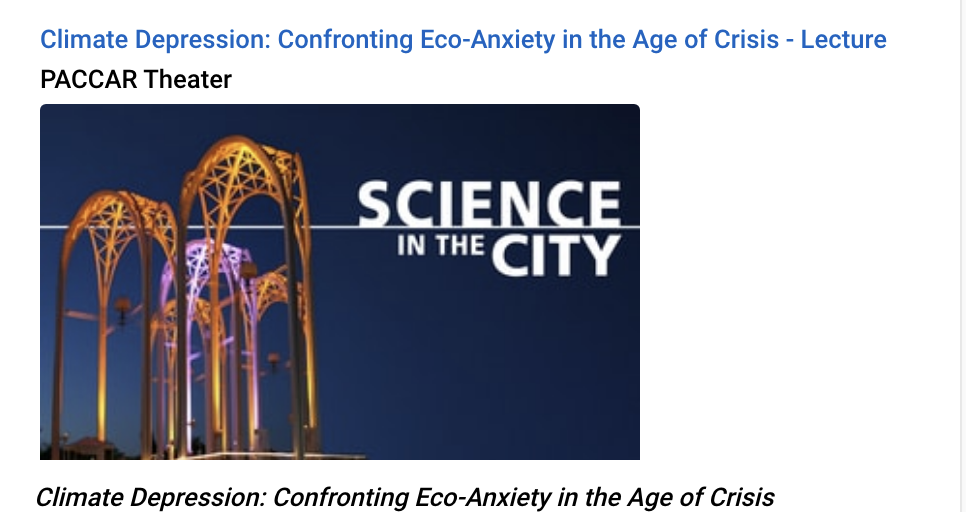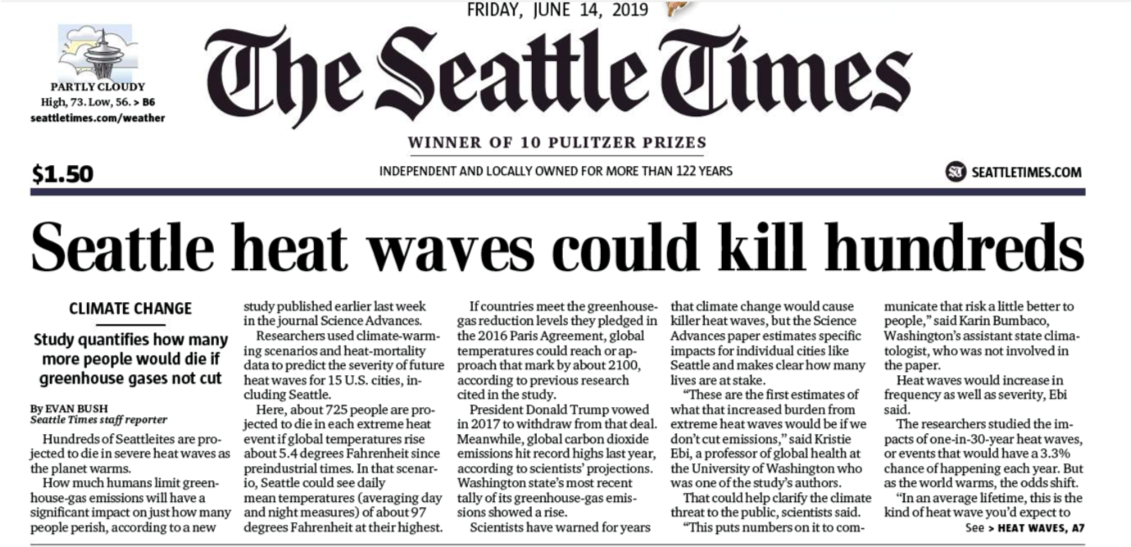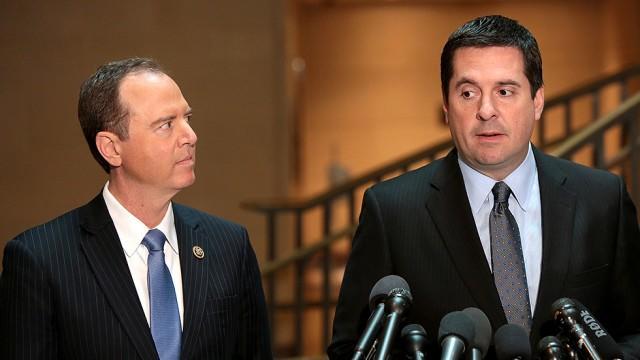The Good, The Bad, & The Ugly In NAFTA 2.0
Authored by Mike Shedlock via MishTalk,
Democrats agree to pass USMCA, Trump’s NAFTA replacement.
Goodbye NAFTA, Hello USMCA
In what “seemingly” constitutes a major victory for Trump, Democratic Lawmakers Agree to Support North America Trade Pact.
House Democrats agreed to support the new U.S. trade deal with Mexico and Canada, marking a victory for President Trump who ran for office in 2016 on a pledge to remake or blow up the North American Free Trade Agreement.
House Speaker Nancy Pelosi called the new version of the U.S.-Mexico-Canada Agreement a “victory for American workers” at a Tuesday morning news conference. The pact will replace Nafta when ratified and contains provisions aimed at creating more manufacturing jobs, for example, by increasing the proportion of vehicles that must originate in North America for the cars and trucks to receive duty-free treatment.
It also includes updated labor rules and beefed-up enforcement provisions to hold firms in Mexico to account on labor, according to people familiar with the emerging deal.
USMCA had long been supported by Republicans and leading business trade groups but opposed by Democrats over concerns such as the legal language enforcing new labor rules. The Democratic approval Monday comes as a rare bipartisan moment of cooperation on economic policy at a time when Capitol Hill is divided over the impeachment inquiry.
USMCA Key Provisions
-
Mexican Labor: U.S. labor unions and Democrats have long complained that Mexican workers can’t always form unions freely and demand fair pay, a situation they say puts pressure on U.S. manufacturing jobs. The Trump administration’s USMCA has new additional labor rules, not included in the current Nafta, as well as new enforcement procedures demanded by Democrats.
-
Auto Rules: Compared with Nafta, USMCA significantly tightens the rules that the auto industry has to follow in order to trade vehicles duty free in North America. A certain proportion of a car will have to be produced by workers with higher wages, and a greater proportion of components will have to originate in North America.
-
Digital Freedom: USMCA, unlike the current Nafta, includes rules mandating the free flow of data among the three countries. This and other novel provisions on exchange rates and other areas aren’t so crucial for Canada and Mexico but could later be applied to pacts with more restrictive countries or even China.
-
Agriculture: A deal to pass USMCA means farmers of major crops no longer have to worry about President Trump potentially pulling out of the existing Nafta and leaving them fewer major export markets. USMCA also gives dairy farmers more access to Canada.
-
Pharma: Big drugmakers are likely to be disappointed, since Democrats pushed the Trump administration to remove language that would have protected expensive biologic drugs from generic imitators for 10 years. The existing Nafta treaty has no such drug protections.
Point by Point Comments
1: Pelosi wanted more, and settled for less. Five days ago, the Wall Street Journal reported Democrats Want to Invade Mexico. Essentially, the unions demanded that the US be allowed to enforce labor laws in Mexico. However, Mexico would not agree. Canada would not have gone alone either.
2: The devil is in the details. I suspect Mexico will be able to circumvent these rules, if it wants.
3: Digital rules accomplish nothing.
4: Agriculture essentially remains the status quo. Wisconsin dairy farmers do get a minor victory.
5: This is a potential victory for US consumers, but one that Trump did not appear to want. In practice, however, I wonder if it does much.
AFL-CIO President Rich Trumka Tweets
Dramatically Worse
Nearly anything the AFL-CIO supports is, by definition, bad for US consumers.
Thus, if this deal really is a “dramatic improvement”, I propose it is dramatically worse.
The one place Trumka is correct, most likely by accident, is on Big Pharma.
Trump on USMCA
America’s great USMCA Trade Bill is looking good. It will be the best and most important trade deal ever made by the USA. Good for everybody – Farmers, Manufacturers, Energy, Unions – tremendous support. Importantly, we will finally end our Country’s worst Trade Deal, NAFTA!
— Donald J. Trump (@realDonaldTrump) December 10, 2019
Devil in the Details
What this comes down to is how easily Mexico can get around key provisions 1 and 2.
The more Mexico adheres to those points, the worse the deal Trump negotiated.
Good for Unions, Bad for Consumers
If it’s Good for Unions, It’s Bad for Consumers.
I wrote about that construct a couple days ago in France Should Take a Lesson From Ronald Reagan: Fire the Strikers.
Even FDR understood that public unions and public service were impossibly incompatible.
Click on the link for discussion.
Proud Union Hater
I am a proud union hater all my life.
They promote based on seniority, not talent. They keep incompetent teachers in jobs. They keep corrupt police officers in jobs.
They raise taxes for benefits the average person can’t get, then demand more and more in return for less.
— Mike “Mish” Shedlock (@MishGEA) December 8, 2019
Unions promote on seniority, not talent. Anyone who wants to get ahead based on performance, not seniority, should not be a union supporter.
Moreover, corrupt union leaders get into bed with corrupt politicians. The combination is the biggest vote-buying racket in the world.
This puts the public at the mercy of militant teachers’ unions, police unions, and firefighter unions all demanding and receiving untenable pension promises.
GM and Ford
GM’s bonds, despite a bailout (necessary because giving into union demands bankrupted the company) are just a step above Junk.
So are Ford bond.
The strike is over. Hooray. But GM has a second date with bankruptcy court. Ford will have a first.
Pensions
Meanwhile, please note that Illinois pensions are among the worst funded in the entire nation. Things are even worse in Chicago where Each Chicagoan Owes $140,000 to Bail Out Chicago Pensions.
Chicago Mayor Lori Lightfoot’s only solution is the same as that of predecessor Rahm Emmanuel: Raise Taxes.
Get The Hell Out Now
These facts, and they keep piling up, is what prompted me to write on October 4, Escape Illinois: Get The Hell Out Now, We Are
Also consider Chicago Headed for Insolvency, Get the Hell Out Now.
In 2020 we are moving to Utah. We have had enough.
Trump Irony
Trump is bragging about USMCA. And most Trump supporters will see it that way.
But at best, the deal represents no significant changes.
Importantly, the more the AFL-CIO and Pelosi are right, the worse Trump’s deal is in practice.
Tyler Durden
Tue, 12/10/2019 – 20:05
via ZeroHedge News https://ift.tt/2YAoLH3 Tyler Durden
